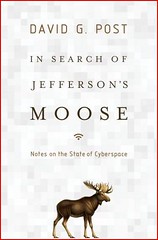 Caroline Kennedy has abruptly dropped her bid for Hillary Clinton’s Senate seat. Her father, of course, probably ties with Andrew Mellon and Ronald Reagan as one of the greatest supply-side tax-cutters of all time. The economic boom JFK unleashed probably makes up for whatever damage—personal or national—done by the Kennedy clan over the years.
Caroline Kennedy has abruptly dropped her bid for Hillary Clinton’s Senate seat. Her father, of course, probably ties with Andrew Mellon and Ronald Reagan as one of the greatest supply-side tax-cutters of all time. The economic boom JFK unleashed probably makes up for whatever damage—personal or national—done by the Kennedy clan over the years.
But whatever one thinks of Caroline in particular or the Kennedys in general, her departure from the “race” to succeed Clinton may go down in history as a catastrophe for Internet freedom, since it likely means that NY Attorney General Andrew Cuomo will take the seat.
Cuomo has cast himself as a hero fighting to protect children by strong-arming ISPs into shutting down Usenets, as Ryan has explained. Jim correctly points out the “shake down” nature of Cuomo’s operation. And Adam has explained that this is all part of a broader assault on online free speech. While few are willing to discuss this taboo subject, it’s fair to ask whether the “solutions” Cuomo are really the most effective way to deal with the scourge of child pornography.
I’ll bet good money that if Cuomo makes it into the Senate, he’ll continue this fight on a broader scale—perhaps by pushing for legislation to mandate network-level filtering a la Cleanfeed.
Update: Gov. Paterson has decided to appoint Rep. Kirsten Gillibrand to this seat rather than Cuomo. That’s the good news. The bad news is that this bully is still Attorney General of the Empire State. I have no doubt he’ll continue his war on free speech in his current position.



 The Technology Liberation Front is the tech policy blog dedicated to keeping politicians' hands off the 'net and everything else related to technology.
The Technology Liberation Front is the tech policy blog dedicated to keeping politicians' hands off the 'net and everything else related to technology.